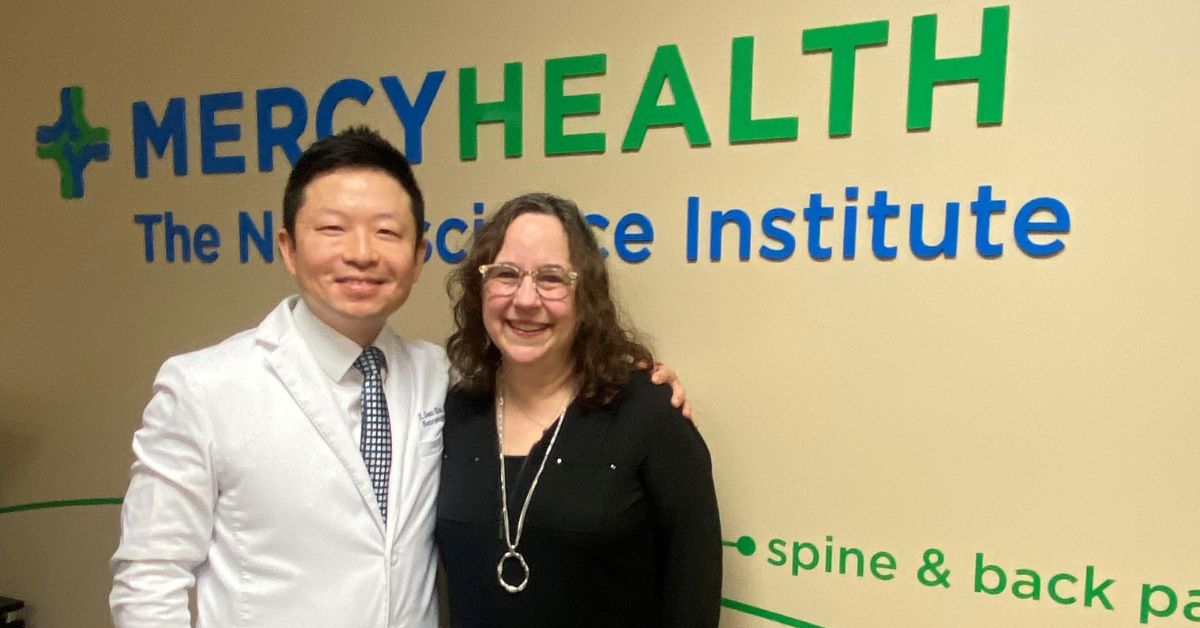Motherhood is a celebration of life, and the birth of your baby is the grand finale after months of anticipation.
But what if you aren’t feeling overjoyed in your new role as a mother?
Many new moms may experience a few “baby blues” as they return home with their bundle of joy. However, some mothers struggle with postpartum depression. Mental health is critical to our wellbeing. We need to make sure we are providing safe spaces for conversations about it, especially for new mothers.
Elliot Philipson, MD, medical director of our Centering in Pregnancy Program in Youngstown, Ohio, shares that it’s important for new moms to know the risk factors, signs and symptoms of postpartum depression. Also, when and where to seek treatment for it if needed.
This topic is something Dr. Philipson and his wife, Sandy, (pictured above) personally know all too well. Sandy experienced postpartum depression symptoms after giving birth to their first born, a 27-week preemie. The delivery itself was very traumatic with some complications and an emergency C-section. It resulted in an intrauterine infection for Sandy. Additionally, their baby, a daughter, was in the NICU for almost three months.
“The most difficult postpartum emotion was the sense of failure that I didn’t give our daughter the right start,” Shady shares. “Later it came to light why she was born so prematurely. In the 1940s, my mother took a commonly used drug to maintain the pregnancy with me. However, the drug caused problems with my own cervix and my ability to carry a pregnancy to term. I felt that even though it wasn’t my fault, I still blamed myself that I could not carry her to term. The depression lasted for many months until I brought our daughter home. I did not seek help or interventions, which may happen to a lot of women.”
“Sometimes you are just unsure of why you feel so sad,” Sandy adds.
While we all have bad days and adjusting to change is difficult, there is more to postpartum depression and accompanying anxiety than just a bad day. While the baby blues are mild and usually resolve within a week after your baby is born, women with postpartum depression experience more severe symptoms.
These symptoms include:
- an increase in anxiety and sadness
- a decrease in energy
- the feeling of worthlessness and guilt
- idealizations of suicide or even thoughts of harming their baby.
Symptoms of postpartum depression typically last for longer periods of time and make it feel hard to live your life each day. They can even develop a year after you have your baby.
“Because depression is two times more likely in women, it can often be unrecognized for postpartum depression,” Dr. Philipson explains. “So, it is very important to acknowledge that postpartum depression is being more than sad. This mental health issue affects around 20 million mothers, and around one in eight women will be affected by an episode.”
No one knows the exact cause of postpartum depression. Besides the overwhelming feelings that emerge for caring for a new baby, many women can’t understand why this sadness is happening. It’s critical for mom experiencing the symptoms listed above to seek treatment right away. You can talk to your OBGYN, primary care provider or a therapist about your symptoms.
“When talking to your OBGYN or primary care provider, there is a screening tool for postpartum depression which incorporates 10 questions. The score at the end shows risk or signs of someone having this mental health disorder,” Dr. Philipson shares. “Other than the tools in the office, contacting your provider, particularly your OBGYN, and talking to those around you can have great benefits. There is no need to suffer alone.”
He continues, “another factor to consider is identifying if you are at a higher risk of developing postpartum depression after you give birth ahead of time. Some of these risk factors can include being a younger woman, having a lower education, being a smoker or having depression prior to pregnancy.”
All mothers should remember that postpartum depression doesn’t make you weak or a bad mom.
“The first thing I did was to go to the library and research what there was available on postpartum depression,” Sandy shares. “Being able to go to your doctor after recognizing the symptoms that might be postpartum depression can allow you to be taken more seriously.”
Learn more about the maternity care and mental health services we offer at Mercy Health.
And if you are currently experiencing a mental health emergency, dial 988 to connect with the National Suicide and Crisis Lifeline.






